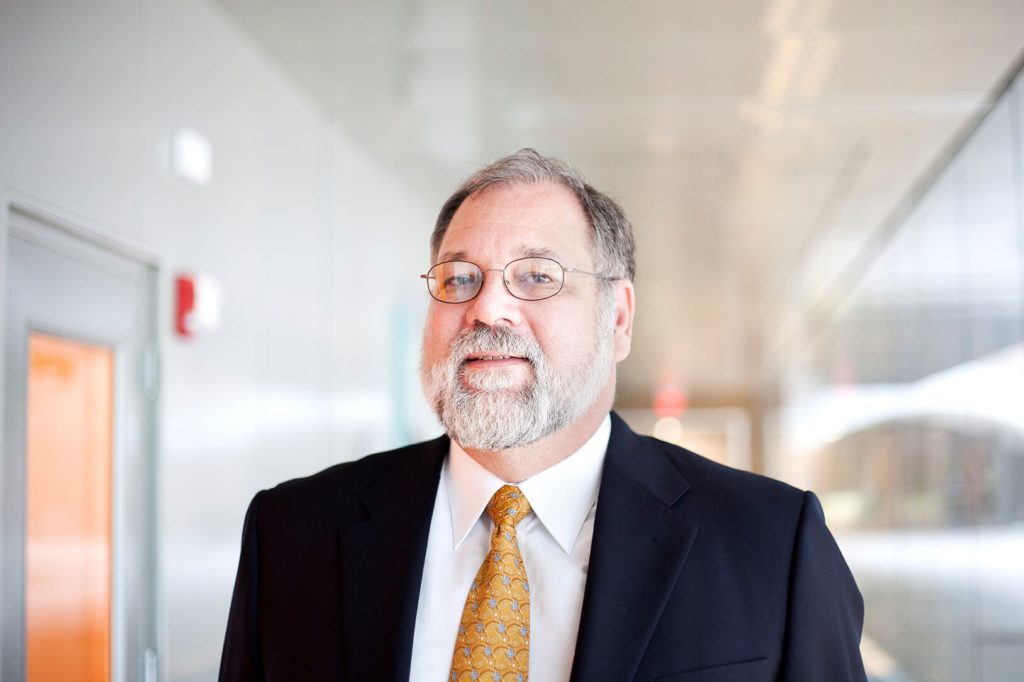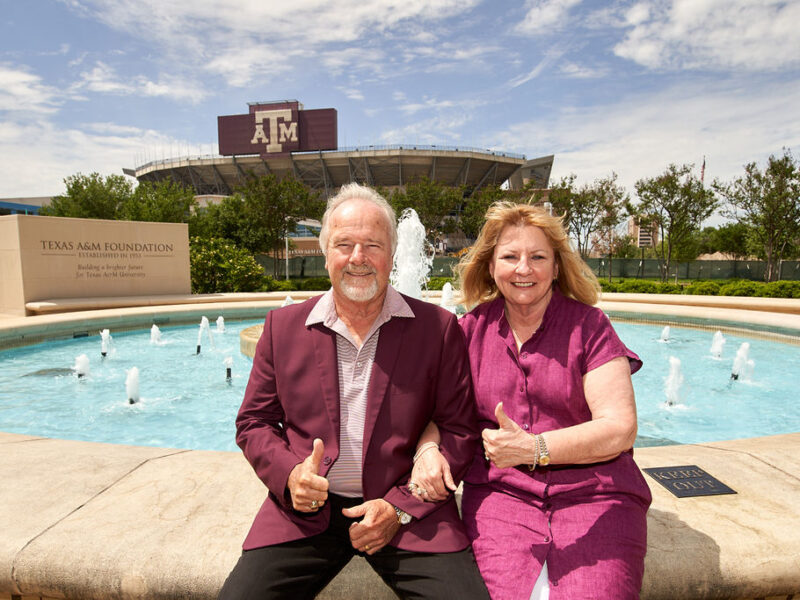
Following a seven-month international search, Texas A&M University has appointed as its next vice president for research Mark A. Barteau, a member of the National Academy of Engineering as well as a highly regarded scientist, researcher, inventor and academic leader. Barteau will assume his new role on Feb. 15.
His research focuses on chemical reactions at solid surfaces and their applications in heterogeneous catalysis and energy processes. He has successfully competed for research funding from the National Science Foundation (NSF), the U.S. Department of Energy, the U.S. Air Force Office of Scientific Research and NASA. Barteau has consulted for numerous industrial organizations including Ford, DuPont, Dow, BASF, Hercules, Atofina, Union Camp, W.L. Gore and Sasol.
“Dr. Barteau’s extraordinary experience in energy research and reputation collaborating across disciplines will be a welcome addition to Texas A&M,” said Michael K. Young, president, Texas A&M University. “At nearly $1 billion in research revenues, Texas A&M has built a nationally-recognized reputation of excellence in discovery, innovation and impact. We look forward to Dr. Barteau’s contributions to our continued pursuit of excellence.”
Provost and Executive Vice President Carol A. Fierke said, “I am pleased that Dr. Barteau will bring his vast experience in collaborative leadership and consensus-building to Texas A&M University’s research enterprise.”
As the vice president for research, Barteau will lead Texas A&M’s Division of Research, which delivers strategic support to further the university’s research mission by facilitating collaborations to grow federal funding, strengthening the research infrastructure, promoting the value of research, encouraging commercialization partnerships and ensuring research compliance. The vice president for research reports to the provost and works collaboratively with administrators and faculty from across the university’s 16 colleges and schools, its branch campuses, Health Science Center and University Libraries. He also will hold academic appointments at Texas A&M in the Department of Chemical Engineering, College of Engineering and the Department of Chemistry, College of Science.
“Texas A&M enjoys a strong reputation among its peers as a top-tier research institution,” Barteau said. “I look forward to the challenge of working with the university’s world-class faculty to enhance Texas A&M’s reputation and to conduct ground-breaking, transformative research that changes the world for the better.”
NSF Survey: Texas A&M Ranked No. 9 Among Publics, No. 16 Overall For Research Expenditures
Barteau comes to Texas A&M from the University of Michigan, where he is the director of the University of Michigan Energy Institute as well as the DTE Energy Professor of Advanced Energy Research, a professor of chemical engineering, a professor of chemistry and a Dow Distinguished Fellow in Sustainability. Barteau launched several initiatives at the University of Michigan that have attracted national attention, including creation of a comprehensive Battery Fabrication and Characterization User Facility, the University of Michigan Energy Survey, and Beyond Carbon Neutral – a university-wide initiative integrating technological, biological and policy solutions to reduce greenhouse gas concentrations. He is a frequent contributor on energy and environmental perspectives to The Conversation, Fortune, and National Public Radio.
He was one of 17 members of the National Research Council (NRC) committee that authored the report, “Beyond the Molecular Frontier: Challenges for Chemistry and Chemical Engineering.” He chaired the NRC committee that produced the 2013 report, “Effects of Diluted Bitumen on Crude Oil Transmission Pipelines.” He serves on two National Academies’ studies developing research agendas for carbon dioxide removal and the utilization of carbon waste streams. He was co-chair of the Chemical Sciences Roundtable and chair of the Council of Chemical Sciences for the Department of Energy’s Office of Science. He is currently on the National Academy of Sciences’ board on Chemical Sciences and Technology and on the science advisory board for the National Institute of Clean and Low-Carbon Energy (NICE) in China. He is a member of the Board of Directors of NextEnergy in Detroit.
He received his bachelor’s degree in chemical engineering from Washington University in St. Louis and his master’s and doctorate from Stanford University. He was an NSF Post-doctoral Fellow in physics at the Technische Universität München in Germany and has held visiting appointments at the University of Pennsylvania (chemical engineering) and the University of Auckland, New Zealand (chemistry).
Prior to joining the University of Michigan in 2012, he served as the senior vice provost for research and strategic initiatives at the University of Delaware, where he held the Robert L. Pigford Endowed Chair of Chemical Engineering and was a professor of chemistry and biochemistry. In his leadership role, he was actively engaged in the development of funding and new facilities for several university-wide institutes, including biotechnology, rehabilitation and environmental institutes, and served as founding director of the University of Delaware Energy Institute. He chaired the Governor’s Energy Advisory Council’s Environmental Footprint Task Force, which prepared a five-year energy plan for the state of Delaware in 2009.
###
Media Contact: Rusty Cawley, (979) 458-1475, rcawley@tamu.edu



